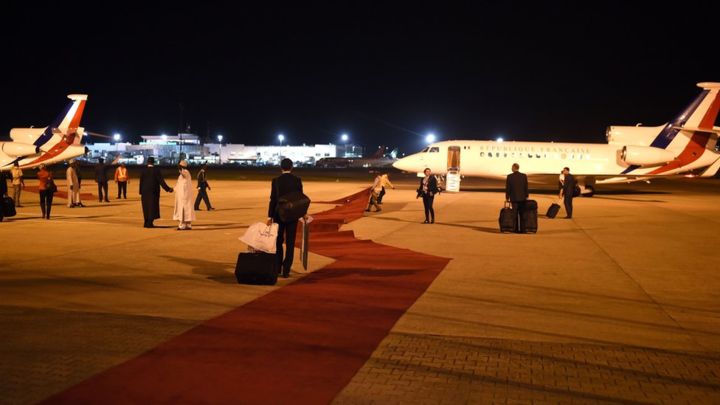- Middle East Investors Move to Take Over Nigerian Airports
Some stakeholders in the aviation sector, including members of the National Assembly, are worried that investors from some Middle East countries are expressing interest in the planned concession of Nigerian airports.
Check showed that the interests thus far received from countries like Turkey, Saudi Arabia and Qatar are bothering the stakeholders because of the security implication for Nigeria and alleged “northern agenda” currently put forward either by coincidence or deliberately in the concession buildup.
The Federal Executive Council (FEC) recently granted approval for the concession of the four international airports in Lagos, Abuja, Port Harcourt and Kano. The approval, currently being worked out by the Ministry of Aviation, is the first phase of the plan to concession all the 22 Federal Government-owned airports nationwide.
Senior Special Assistant to the President on Media and Publicity, Garba Shehu, last week recounted the gains of President Muhammadu Buhari’s recent visit to Turkey and among the mentioned is the expression of interest by Turkish investors.
Besides Turkey, Saudi and Qatari investors have also shown interest in the multi-million dollar concession arrangement.At one of the public hearings held last Thursday, members of the National Assembly joint committee on aviation got worried about the antecedent of a country like Turkey that has lately been embroiled in political unrest, as well as serving as a channel through which arms and ammunition were smuggled into Nigeria.
While the Turkish authorities have denied having a hand in the arms-trafficking saga, aviation experts are wary of future transactions with investors with Turkish interests.
A member of a civil society organisation, who was at the hearing, said some lawmakers were of the view that if the biddings were restricted to the middle east, then it will not get the buy-in of Nigerians who “will see it as coloured by a northern and religious agenda.”
Aviation union members present at the meeting said it was to prevent the airports from falling into the wrong hands that they demanded to be part of the concession process for transparency. The unions were, however, happy that the Federal Government has promised to ensure transparency by involving them.
On the implication of such concerns for the concession plan, aviation security consultant, Group Capt. John Ojikutu (rtd), said he was as disturbed as the lawmakers, though he was quick to add that it was still early to conclude.
Ojikutu told The Guardian that “whereas we cannot but be skeptical with the biddings, expression of interest is also coming from Europe and Canada, and all need to be patient.”
He said from his conversation with the Minister of State for Aviation, Hadi Sirika, there were several hurdles in the concession process and it was less likely that the wrong bidders would be able to grab a pie in the exercise.
Ojikutu, who is also the Secretary General of the Aviation Safety Round Table Initiative (ASRTI), said: “I am as worried as you, no doubt about that. The National Assembly is also as worried. I think, from what I’ve heard, the minister too is very cautious with what he is doing. Just the way he handled the Abuja airport’s runway is the way he is handling this.
“From the look of things now, they have not left the level of getting the consultants of about three or four to package things together. When they get to that stage, there must be a stakeholders’ meeting, and there would be. It is not only the concession, but also the national carrier, maintenance facility and aerotropolis that are being packaged.
“So, it is too early to start speculating because in any case, all these things will still have to go through the infrastructure concession commission, the PPP, Ministry of Justice and then the Federal Executive Council for approval.
“But in lieu of the security concerns, I have advised them to focus on concession of the terminals, cargo sections and car parks among others, but not the aeronautical side. The International Civil Aviation Organisation (ICAO) has even warned African countries since 2009 not to concession aeronautical side in the light of security issues around us,” Ojikutu said.


 Billionaire Watch4 weeks ago
Billionaire Watch4 weeks ago


 Naira4 weeks ago
Naira4 weeks ago


 Naira3 weeks ago
Naira3 weeks ago




 Naira3 weeks ago
Naira3 weeks ago




 Naira3 weeks ago
Naira3 weeks ago




 Naira2 weeks ago
Naira2 weeks ago
 Commodities3 weeks ago
Commodities3 weeks ago


 Sport Business4 weeks ago
Sport Business4 weeks ago



















